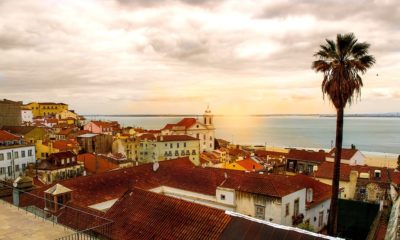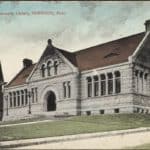
22
JunThe Word for “Potatoes”
 Much of my family history has been washed away on the river behind the soap mills in Rhode Island. That is where my grandparents worked, lived, and abandoned speaking Portuguese for English, and where they hoped that their children would learn English, too, but with a Rhode Island accent that misplaced “r’s”. They hoped that their children would learn math from strict nuns-turned-schoolteachers; that their children would one day have jobs better than their own. What my great grandparents had hoped for when they left the Azores was something better, but not for them.
Much of my family history has been washed away on the river behind the soap mills in Rhode Island. That is where my grandparents worked, lived, and abandoned speaking Portuguese for English, and where they hoped that their children would learn English, too, but with a Rhode Island accent that misplaced “r’s”. They hoped that their children would learn math from strict nuns-turned-schoolteachers; that their children would one day have jobs better than their own. What my great grandparents had hoped for when they left the Azores was something better, but not for them.
My family was one of the lucky ones, for the most part, and each generation was more well-educated, had better jobs, spoke better English (whatever that means), and some became so American that they actually spoke it much worse. As my grandparents passed away, I realized, as many people do when they lose the history that their parents and grandparents remembered, no matter how hazy their memories were, that I could not explain why growing up with chourico for breakfast or malasadas on Sundays seemed the pinnacle of Americanness. Nor could I understand how soaps in the shape of roses, or sailboats, or sunflowers, which all smelled how they looked–even the sailboats!–did not play such an important role in the homelife of my friends; they all bought boring, white soaps that smell nothing like how they looked.
I will not pretend that I was interested in the life that my family had left behind, at least until I was given the opportunity to go to Portugal, to write in some small apartment with an ocean view in Lisbon, and to eat the food of which my father had made his own versions–maybe to drink some of that sweet wine from Porto, too. I had been too focused on the future to think about how it was built on the possibility of someone else’s past. Regardless, and perhaps in spite of a long, willful ignorance of my family’s cultural heritage, I became curious about the language that sounded like it was Spanish whispered with a Russian accent. During my research, the colonial history of the country, the power it once had as an economic empire, and the current social and political progress it celebrates surprised me, for I held onto a belief that, since my family had left, it could never have been a wonderful place, let alone be one today. It was refreshing and empowering to find out how wrong an impression could be by questioning it and determining for myself what was and what was not true.
Much if not all of what I found was from books like Nobel Prize Laureate José Saramago’s Journey to Portugal, Paul Crowley’s Conquerors, or one of the travel books on Portugal (Lonely Planet, Rick Steve’s, and Fodor all have great editions), and I was lucky to be able to use the library’s subscription to Mango Languages so that I could brush up on my Portuguese before the trip. Of course, so much of tracing my family’s roots would have to happen on the winding, cobbled streets and in the coffee shops that brewed strong coffee, but the books gave me a head start, and it turned out that potash, the word my father had always used for potatoes, was wrong; it is actually batatas. Who would have thought?
Samuel Simas is the technology assistant at the Morrill Memorial library; he is a graduate student at the University of Rhode Island’s Graduate School of Library and Information Studies. Read Samuel’s column in the June 22nd issue of the Norwood Transcript & Bulletin.








